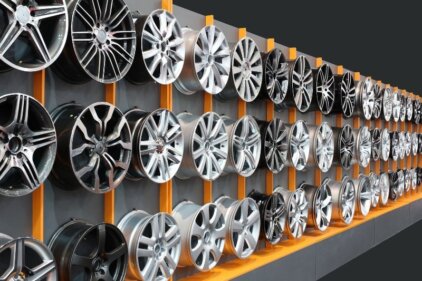Engine modifications refer to any alterations made to the engine components or systems with the aim of improving its overall performance. These modifications can range from simple upgrades like installing a high-flow air filter to more complex modifications such as upgrading the exhaust system or installing a turbocharger.
Understanding emissions and combustion
Before delving into the impact of engine modifications on emissions and combustion efficiency, it’s important to have a clear understanding of these concepts. Emissions refer to the gases and particles that are released into the atmosphere as a result of the combustion process in an engine. These emissions include harmful pollutants such as carbon monoxide, nitrogen oxides, and particulate matter, all of which contribute to air pollution and have adverse effects on the environment and human health.
On the other hand, combustion efficiency refers to how effectively the fuel is burned in the engine. A higher combustion efficiency means that more of the fuel is converted into useful work, reducing fuel consumption and increasing power output. Achieving high combustion efficiency is crucial not only for improving the overall performance of the engine but also for reducing emissions.
The impact of engine modifications on emissions
One of the main goals of engine modifications is to reduce emissions and make vehicles more environmentally friendly. Certain modifications can help achieve this by optimizing the combustion process and minimizing the production of harmful pollutants. For instance, upgrading the fuel injection system to a more advanced and precise system can result in better fuel atomization, leading to a more complete combustion and lower emissions.
Another common modification is the installation of a catalytic converter. This device is designed to convert harmful gases such as carbon monoxide and nitrogen oxides into less harmful substances before they are released into the atmosphere. By effectively reducing emissions, engine modifications play a crucial role in ensuring compliance with increasingly stringent emissions regulations.
The impact of engine modifications on combustion efficiency
In addition to reducing emissions, engine modifications can also significantly improve combustion efficiency. By enhancing the air-fuel mixture, optimizing airflow, and increasing compression ratios, modifications can maximize the energy extracted from the fuel, resulting in more power and better fuel economy.
Upgrading the intake and exhaust systems is a popular modification that enhances combustion efficiency. A high-flow air intake system allows for better airflow into the engine, improving combustion by providing more oxygen for the fuel to burn. Similarly, a performance exhaust system allows for the efficient expulsion of exhaust gases, reducing backpressure and improving engine breathing. These modifications result in increased horsepower and torque, while also improving fuel efficiency.
Common engine modifications for reducing emissions
To reduce emissions, there are several common engine modifications that can be implemented. One of the most effective modifications is the addition of an exhaust gas recirculation (EGR) system. This system redirects a portion of exhaust gases back into the engine’s combustion chambers, lowering combustion temperatures and reducing the formation of nitrogen oxides.
Another modification is the installation of a diesel particulate filter (DPF) for diesel engines. This filter traps and removes particulate matter from the exhaust gases, reducing emissions of harmful particles. Additionally, the use of advanced engine management systems, such as engine remapping or tuning, can optimize fuel injection timing and air-fuel ratios, resulting in cleaner and more efficient combustion.
Common engine modifications for improving combustion efficiency
When it comes to improving combustion efficiency, there are several common modifications that can be considered. One such modification is the installation of a turbocharger or supercharger. These devices compress the air entering the engine, providing a denser charge and allowing for more efficient combustion. The increased airflow and higher combustion pressures result in improved power output and fuel efficiency.
Another modification is the upgrade of the ignition system. Upgrading to a high-performance ignition system, such as an electronic ignition or a multi-spark system, ensures a more reliable and efficient combustion process. These systems provide a stronger spark, leading to better fuel ignition and improved combustion efficiency.
The role of technology in maximizing efficiency
In recent years, advancements in technology have played a significant role in maximizing efficiency through engine modifications. The integration of electronic engine management systems has allowed for more precise control of fuel injection, ignition timing, and other engine parameters. This level of control allows for fine-tuning of the engine to optimize combustion efficiency and reduce emissions.
Furthermore, the development of hybrid and electric powertrains has revolutionized the automotive industry. Hybrid vehicles combine an internal combustion engine with an electric motor, allowing for greater fuel efficiency and reduced emissions. Electric vehicles, on the other hand, produce zero tailpipe emissions and are powered solely by electricity. These technologies highlight the future direction of engine modifications, focusing on even greater efficiency and sustainability.
Case studies: Successful engine modification projects
To illustrate the impact of engine modifications, let’s take a look at a couple of case studies. In one project, a turbocharger was added to a small-capacity petrol engine. The result was a significant increase in power output and torque, while also improving fuel efficiency. The turbocharger allowed for better air-fuel mixing and increased combustion pressures, resulting in a more efficient and powerful engine.
In another case, an EGR system was installed in a diesel engine. This modification reduced nitrogen oxide emissions by redirecting a portion of the exhaust gases back into the combustion chamber. The result was a cleaner-burning engine with lower emissions, while still maintaining good performance and fuel efficiency.
Balancing efficiency and performance
While engine modifications offer the potential for increased efficiency and reduced emissions, it’s important to strike a balance between efficiency and performance. Some modifications that improve efficiency, such as reducing engine friction or optimizing gear ratios for fuel economy, may have a negative impact on performance. It’s essential to consider the intended use of the vehicle and prioritize modifications accordingly.
Additionally, it’s important to note that engine modifications should be done within legal limits and in compliance with local regulations. Some modifications, such as removing catalytic converters or tampering with emissions control systems, are illegal and can result in penalties or fines. It’s crucial to consult with professionals who are knowledgeable about local regulations and can provide guidance on legal modifications.
Conclusion: The future of engine modifications and emissions control
In conclusion, engine modifications have a significant impact on both emissions and combustion efficiency. Through various modifications, such as upgrading the fuel injection system, installing catalytic converters, or enhancing the intake and exhaust systems, emissions can be reduced, making vehicles more environmentally friendly. Similarly, modifications like turbochargers, ignition system upgrades, and advanced engine management systems can improve combustion efficiency, resulting in increased power output and fuel economy.
The future of engine modifications lies in the continued advancement of technology, with a focus on even greater efficiency and sustainability. Hybrid and electric powertrains are paving the way for cleaner and more efficient vehicles, while still offering excellent performance. As regulations become increasingly stringent, engine modifications will play a crucial role in meeting emissions standards while still delivering the performance that enthusiasts desire.
So, whether you’re looking to reduce emissions, improve fuel efficiency, or enhance performance, engine modifications offer a wide range of possibilities. Just remember to strike a balance between efficiency and performance, and always ensure that modifications are done within legal limits. With the right modifications, you can maximize the efficiency of your engine while minimizing its impact on the environment





